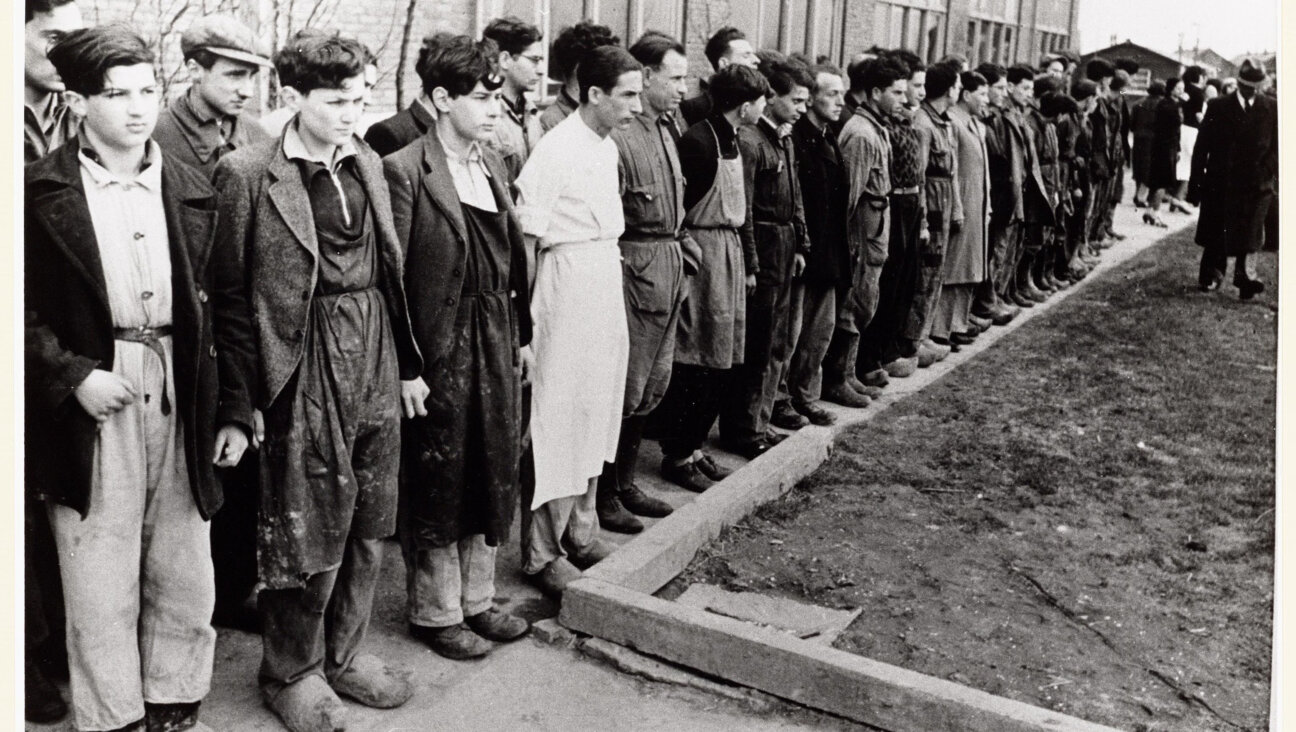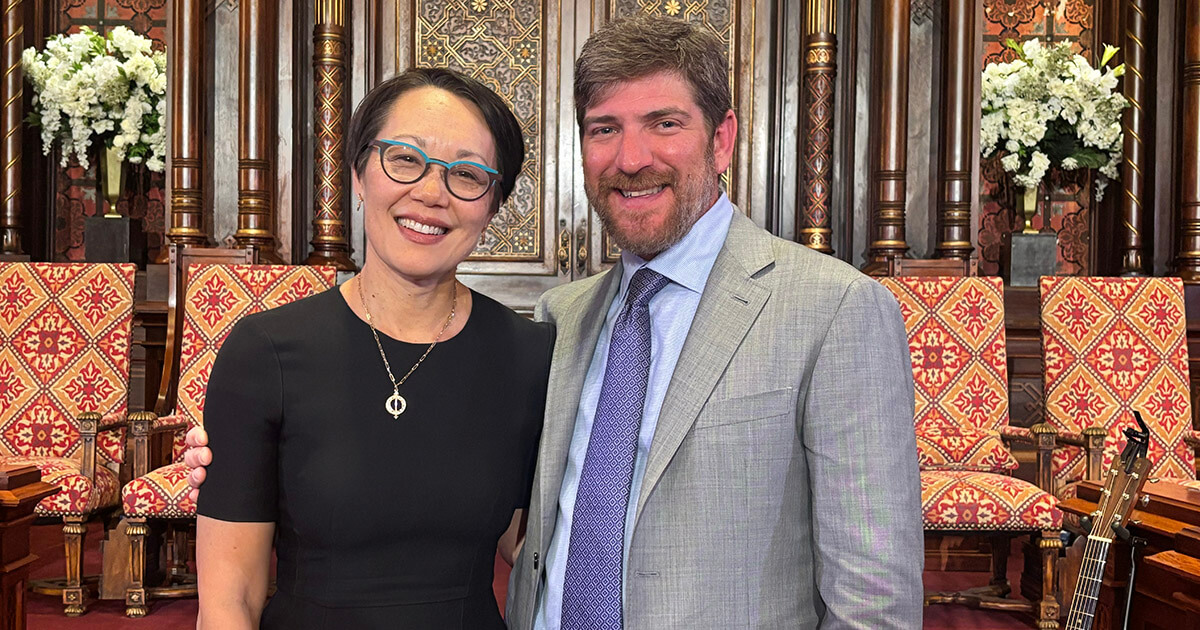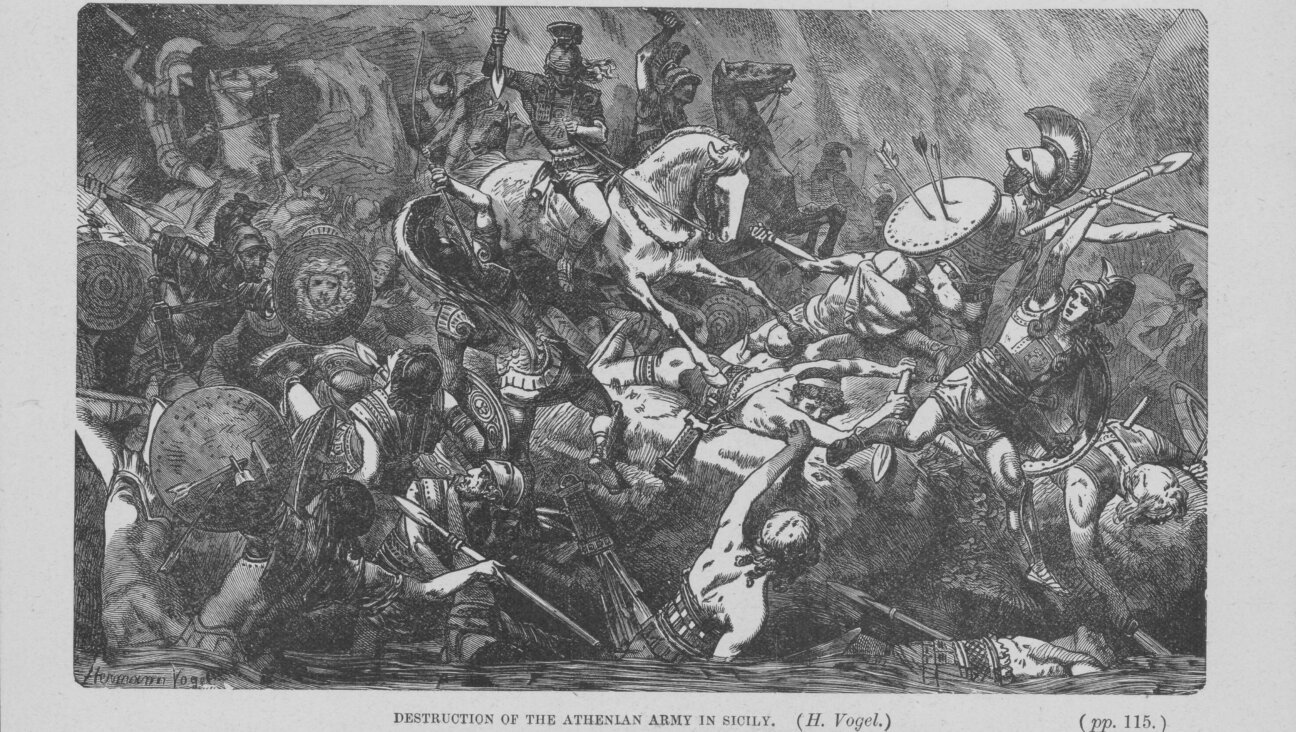Much Ado About Something
Judy Frankel rushes into the Hillel cafeteria, late to campus as usual after her weekly volunteer work at the AIDS hospice downtown. How good to engage in tikkun olam, repairing the world — keeping patients company during dinner, holding this hand and that, eliciting memories of healthier times. But afterward, she needs the comfort of her Friday night havurah, where student-led discussions take her mind off suffering, connect her to a living body of millennia-old thought.
Out of breath, she takes a seat in the circle of chairs, notices who’s about to lead the evening’s Torah discussion and rolls her eyes. Eddie Gottlieb, a senior. Cute, with curly black hair and beard, forever bumping her arm at the cafeteria salad bar or selecting a library computer terminal beside hers. But, he’s never asked her out. Maybe he knows she’d decline because she can’t stand his contrived biblical interpretations designed to confound and impress.
In a courtroom voice intended, Judy believes, to remind everyone that he’s been accepted to Harvard Law School, Eddie begins, “If one reads two parts of Naso together, one draws a conclusion not typically perceived by the lay reader of the weekly Torah portion.”
His eyes meet hers and Judy looks away, twists a curl of red hair by her ear, as if creating payess.
“Naso,” Eddie continues, “presents a ceremonial test for a wife suspected of adultery: If she fails, her ‘belly shall swell, and her thigh shall fall away.’ This passage appears soon after the exhortation to cast the leper out of the camp. With leprosy, body parts sometimes fall away.”
Judy leans forward in her seat. Is he suggesting — ?
“If one reads these passages together,” Eddie continues, “Naso could be seen as equating leprosy with adultery. Or is the portion suggesting disease to be the result of moral failure?” Some in the circle ooh and ahh, while others murmur, “You’ve got to be kidding.”
Judy glares at Eddie, stands and quietly leaves the circle, the cafeteria, the building, walks out into the dark evening air, strides around the block. How dare he tie disease to socially disapproved behavior! The Torah’s whole notion of casting out, rather than caring for, the leper has always appalled her. She understands that in biblical times there were no effective protections for the healthy, but that’s no longer true. Shouldn’t we now read the Torah in the context of human history and the evolution of human compassion?
Calmer now, Judy returns to Hillel, resumes her seat as Eddie says: “As the moral compass of Western civilization, the Torah’s teachings and philosophical underpinnings must be assumed consistent. Our task is to decipher the Torah’s coherence.”
“May I ask something?” Judy says with measured calm.
“Absolutely! How pleasing to have sparked a question.”
“I’m just a freshman,” she begins, “but I think Naso contains a philosophical inconsistency: On the one hand, the portion requires certain family lineages to transport specific parts of the Tabernacle and Sanctuary. On the other hand, Naso permits the Nazarite to make his own vows of service irrespective of his lineage.”
“Two unrelated sets of provisions,” Eddie declares. “In no way mutually exclusive. No inconsistency.”
“But if we look at philosophical underpinnings, then Naso’s family lineage requirements support the notion of predestination — if you’re born into a certain family, you’ve got no choice but to bear certain burdens. However, Naso’s choice to the would-be Nazarite is supportive of free will. Two very different, even contradictory, philosophies.”
Eddie blinks, says, “You’re connecting things that are not tied in the text. Naso simply says that some families have some duties, and other people might choose others. Nothing to do with predestination or free will. Your conclusions are farfetched.”
“Really?” Judy asks. “And who’s to decide which connections and conclusions are farfetched and which aren’t?”
Tugging on the chin of his beard, Eddie glances around the circle. Some faces are wide-eyed expectant, others are purse-lipped mocking. “I guess,” he says with a shrug and a grin, “the one to decide is the one who’s senior.” He winks.
Laughter from the circle, finger pokes into Eddie’s side, an “Oh, sure!” and a “Yeah, right!” and a “How convenient for you!” All the while, Eddie’s eyes remain locked onto Judy’s.
So, she thinks, he knows that he’s pompous. Shaking her head, she smiles back at him. He’s a fool, but kind of cute. Maybe now, if he asks her out, she’ll consider saying yes.
Daniel M. Jaffe, author of the novel “The Limits of Pleasure,” lives in Santa Barbara, Calif.














